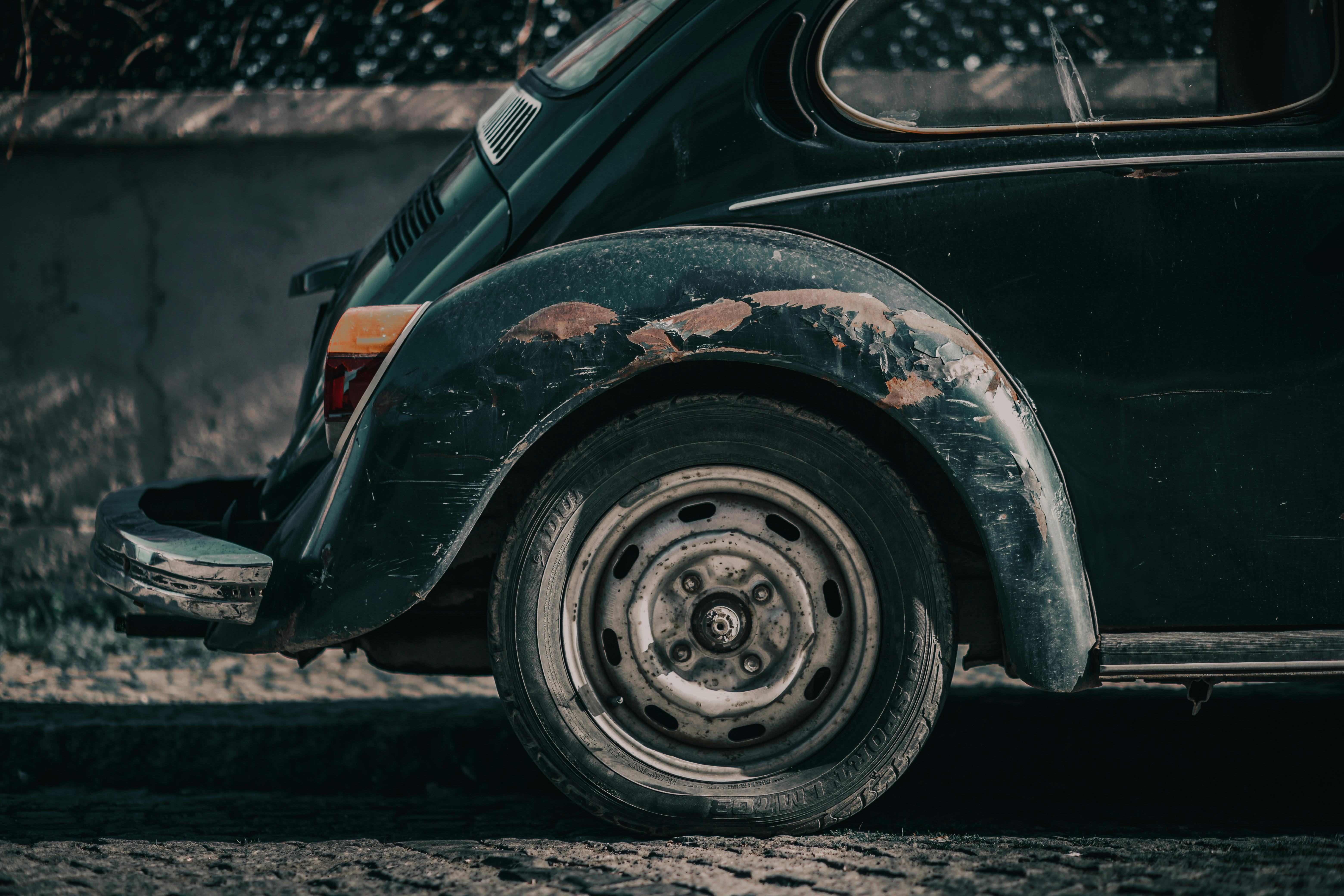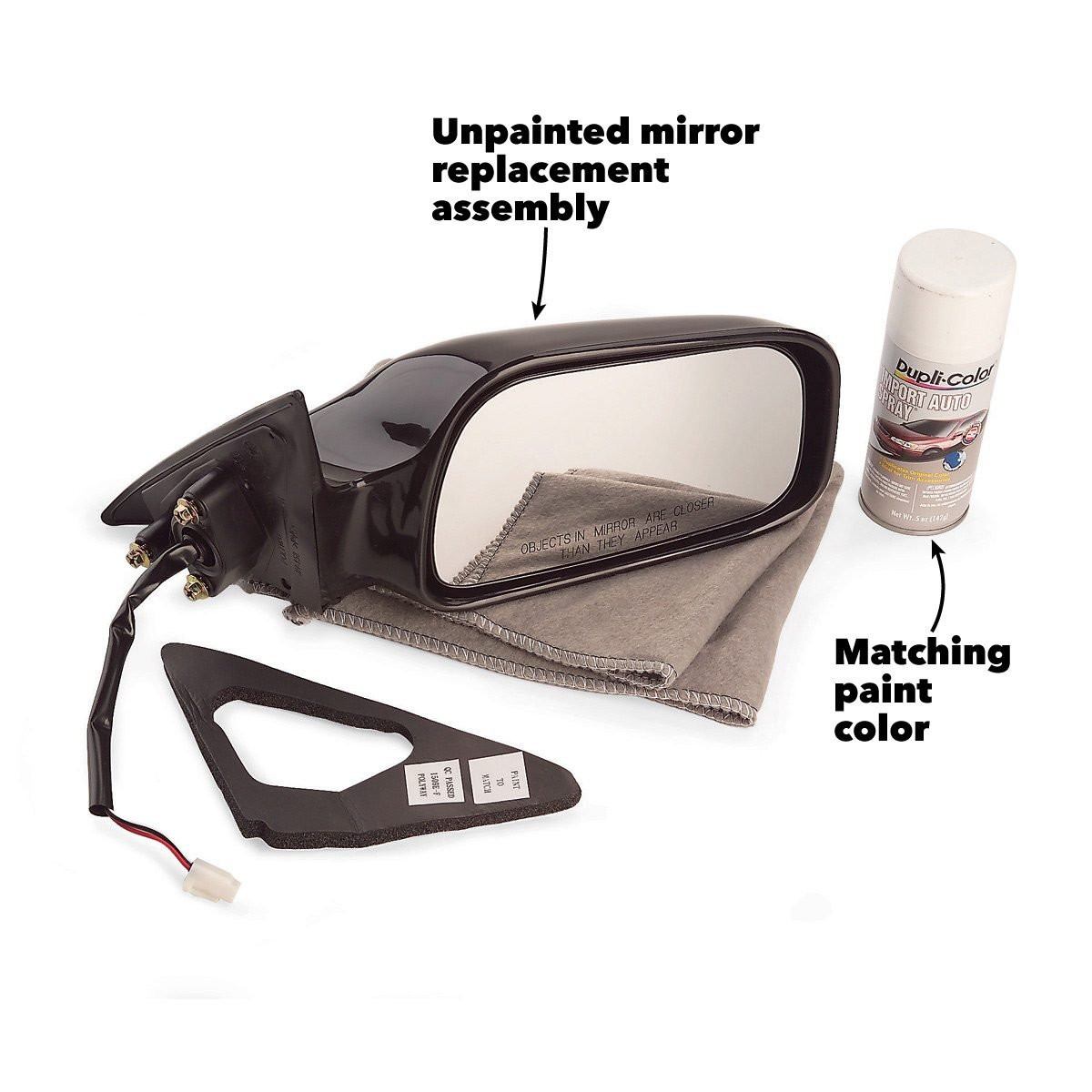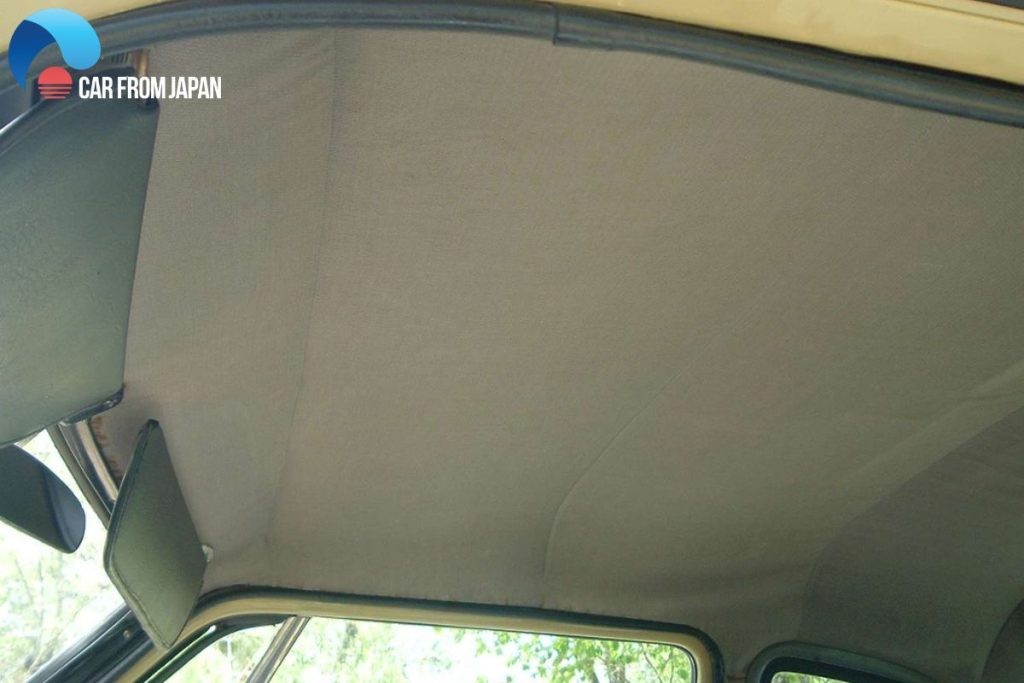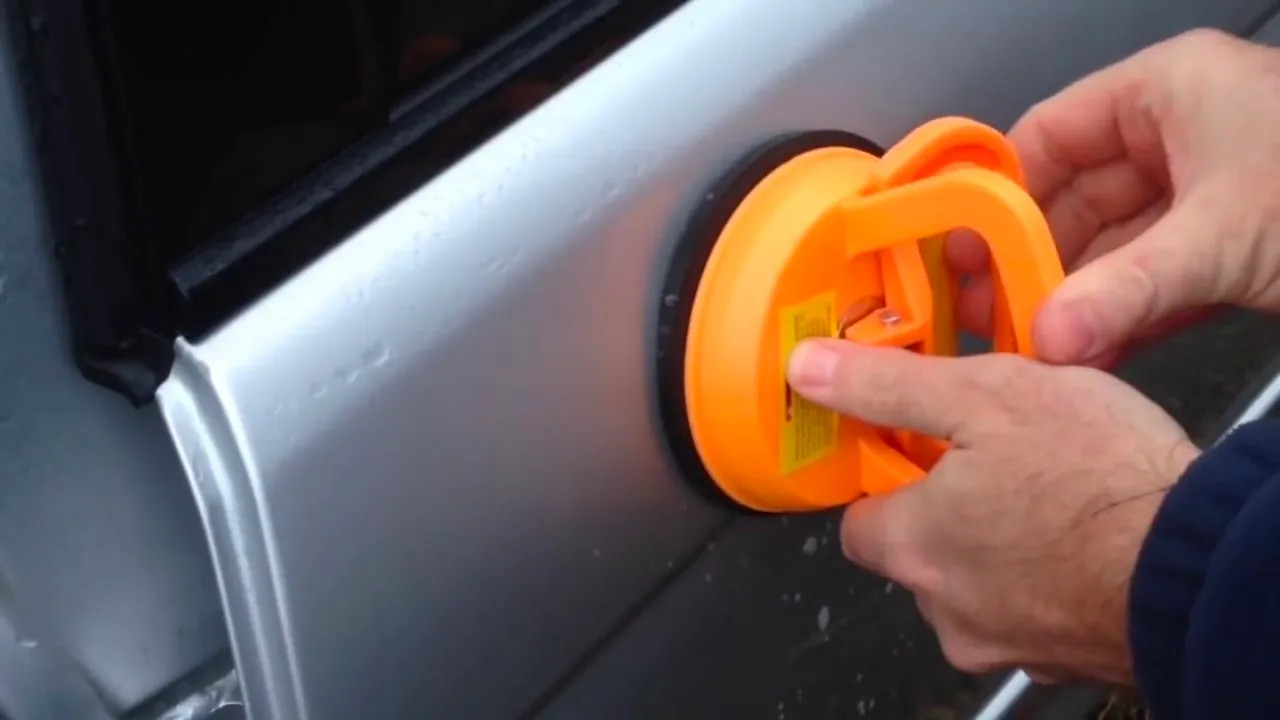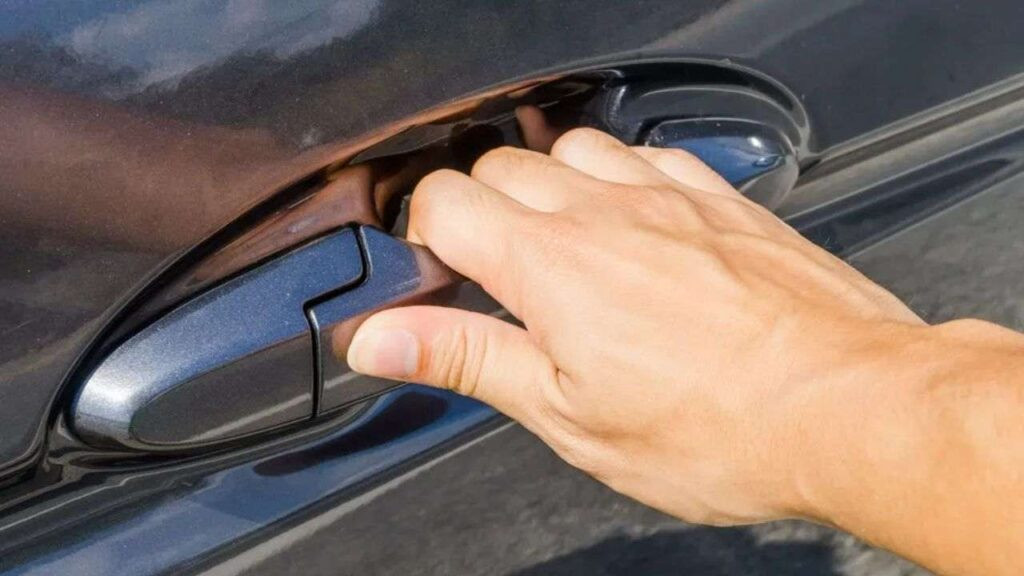How Much To Fix Rust On Car: Comprehensive Guide
As auto repair content creators at CARDIAGTECH.NET, we understand the frustration of dealing with rust on your vehicle. Figuring out the cost to repair automotive corrosion doesn’t have to be a mystery. This in-depth guide provides a breakdown of rust repair expenses, covering everything from minor surface rust to extensive structural damage, while also exploring preventative measures and the best tools for the job. Get ready to explore solutions for rust removal, corrosion treatment, and long-term vehicle protection, all while understanding the role quality tools play in effective auto body repair.
1. Understanding the Enemy: Types of Rust and Their Impact
Rust, or iron oxide, is the bane of any car owner’s existence. Before diving into the costs associated with fixing it, it’s important to understand the different types of rust and the severity of the damage they cause. Identifying the type of rust affecting your vehicle will help you better estimate the repair costs and choose the appropriate treatment method.
-
Surface Rust: This is the most common and least severe type of rust. It appears as a reddish-brown discoloration on the surface of the metal. Surface rust typically forms when the paint is chipped or scratched, exposing the bare metal to moisture and oxygen. While it might seem cosmetic, surface rust can quickly spread and develop into more serious problems if left untreated.
-
Scale Rust: When surface rust is left unattended for extended periods, it can evolve into scale rust. Scale rust is characterized by thicker, flakier layers of corrosion that start to eat into the metal. As the rust penetrates deeper, it weakens the structural integrity of the affected components. This type of rust requires more aggressive removal techniques and may necessitate patching or welding to restore the metal’s strength.
-
Penetrating Rust: This is the most severe form of rust, as it eats completely through the metal, creating holes and significantly compromising the vehicle’s structural integrity. Penetrating rust often affects areas prone to moisture accumulation, such as rocker panels, floorboards, and frame rails. Repairing penetrating rust typically involves cutting out the damaged sections and welding in new metal, making it the most expensive type of rust repair.
Understanding the type of rust you’re dealing with is the first step in estimating the cost to fix rust on your car. Remember that early detection and treatment are key to preventing minor surface rust from turning into a costly, structural issue.
2. Factors Influencing Rust Repair Costs
Several factors can influence the cost of repairing rust on your car. These include the severity of the rust, the location of the damage, the type of vehicle, and the repair methods used. Let’s take a closer look at each of these factors:
- Severity of the Rust Damage: As discussed earlier, the type of rust plays a significant role in determining the repair cost. Surface rust is the least expensive to fix, while penetrating rust requires extensive repairs and is therefore the most costly. The extent of the damage, such as the size and depth of the rusted area, will also affect the amount of labor and materials needed for the repair.
- Location of the Rust: Rust in easily accessible areas, such as door panels or fenders, is generally less expensive to repair than rust in hard-to-reach spots like frame rails or undercarriage components. Areas that require dismantling or removal of other parts to access the rust will also increase the labor costs.
- Vehicle Make and Model: The make and model of your car can also affect rust repair costs. Parts availability and the complexity of the vehicle’s construction can influence the price of replacement panels and the labor time required for the repair. Luxury or rare vehicles may have higher repair costs due to specialized parts and labor requirements.
- Repair Methods Used: The chosen repair method will also impact the overall cost. Simple rust removal and paint touch-up will be less expensive than cutting out and replacing entire sections of rusted metal. The use of advanced techniques, such as media blasting or rust converters, may also affect the final price.
- Labor Rates: Labor rates vary significantly depending on the location and the shop performing the repairs. Dealerships typically have higher labor rates than independent body shops. The experience and skill of the technician will also factor into the labor cost.
- Materials and Parts Costs: The cost of materials, such as rust removers, fillers, primers, paints, and replacement panels, will contribute to the overall expense. The quality and type of materials used can also affect the price.
- Hidden Damage: In some cases, what appears to be a small area of rust on the surface may indicate more extensive damage underneath. Hidden rust can increase the overall repair costs as it requires additional labor and materials to address. A thorough inspection is crucial to identify any hidden damage before starting the repair.
3. Estimating the Cost: A Breakdown of Common Rust Repairs
Now that you understand the factors influencing rust repair costs, let’s look at some common rust repairs and their estimated price ranges. Keep in mind that these are just estimates, and the actual cost may vary depending on the factors mentioned above.
| Type of Rust Repair | Description | Estimated Cost Range |
|---|---|---|
| Surface Rust Removal | Involves sanding, chemical treatment, and repainting the affected area. | $100 – $500 |
| Rust Hole Patching | Requires welding a metal patch over a rusted-out area. | $300 – $1,000+ |
| Panel Replacement | Involves replacing an entire rusted panel, such as a fender or door. | $500 – $2,000+ |
| Frame Rust Repair | This is the most extensive type of rust repair, often involving welding new sections of metal to the frame. | $1,000 – $5,000+ |
| Full Body Restoration | A complete overhaul of the vehicle, including rust repair, bodywork, and painting. | $5,000 – $20,000+ |
| DIY Rust Repair Kit | A kit that contains the necessary materials and tools to repair rust on your own. | $50 – $200 |
| Professional Rust Inspection | A thorough inspection by a qualified technician to assess the extent of the rust damage and provide an accurate repair estimate. | $50 – $150 |
| Rust Prevention Treatment | Applying a rust inhibitor or undercoating to protect the vehicle from future rust damage. | $100 – $500 |
| Media Blasting | A process that uses abrasive media to remove rust and other contaminants from the surface of the metal. | $200 – $800 |
| Rust Converter Application | Applying a chemical solution that converts rust into a stable, paintable surface. | $50 – $200 |
It’s crucial to get multiple estimates from reputable body shops before committing to any rust repair work. This will help you get a better understanding of the cost range for your specific repair needs and ensure you’re getting a fair price.
4. DIY vs. Professional Rust Repair: Which is Right for You?
When it comes to fixing rust on your car, you have two main options: DIY (Do-It-Yourself) or professional repair. Both approaches have their pros and cons, and the best choice for you will depend on your skill level, budget, and the severity of the rust damage.
DIY Rust Repair:
- Pros:
- Cost-Effective: DIY rust repair can be significantly cheaper than professional repairs, especially for minor surface rust.
- Control: You have complete control over the repair process, from choosing the materials to setting the pace.
- Learning Experience: DIY rust repair can be a valuable learning experience, allowing you to gain new skills and knowledge about auto body repair.
- Cons:
- Time-Consuming: DIY rust repair can be a time-consuming process, especially if you’re not experienced.
- Skill Required: DIY rust repair requires a certain level of skill and knowledge, including sanding, welding, and painting techniques.
- Potential for Mistakes: If you’re not careful, you can make mistakes that can worsen the rust damage or affect the appearance of your car.
- Limited Scope: DIY rust repair is typically limited to minor surface rust or small rust holes. More extensive rust damage may require professional attention.
Professional Rust Repair:
- Pros:
- High-Quality Results: Professional body shops have the expertise, equipment, and materials to deliver high-quality rust repairs that can last for years.
- Comprehensive Repairs: Professional technicians can handle all types of rust damage, from minor surface rust to extensive structural repairs.
- Warranty: Many professional body shops offer a warranty on their rust repair work, giving you peace of mind.
- Convenience: Professional rust repair is convenient, as you simply drop off your car and let the experts handle the job.
- Cons:
- Expensive: Professional rust repair can be significantly more expensive than DIY repairs.
- Less Control: You have less control over the repair process when you hire a professional.
- Finding a Reputable Shop: It’s important to find a reputable body shop with experienced technicians to ensure a high-quality repair.
Ultimately, the decision of whether to DIY or hire a professional for rust repair depends on your individual circumstances. If you’re a skilled DIYer with the time and resources to tackle the job, DIY rust repair can be a cost-effective option. However, if you’re not comfortable with auto body repair or if the rust damage is extensive, it’s best to leave the job to the professionals.
5. Step-by-Step Guide to DIY Surface Rust Removal
If you’ve decided to tackle surface rust removal on your own, here’s a step-by-step guide to help you get the job done right:
Tools and Materials:
- Safety glasses
- Gloves
- Respirator or dust mask
- Sandpaper (various grits, such as 80, 120, 220, and 320)
- Sanding block or orbital sander
- Wire brush or drill with wire wheel attachment
- Rust remover or converter
- Metal primer
- Automotive paint (matching your car’s color)
- Clear coat
- Masking tape and paper
- Tack cloth
- Clean rags
- Wax and grease remover
Steps:
-
Preparation: Park your car in a well-ventilated area and put on your safety glasses, gloves, and respirator or dust mask.
-
Cleaning: Thoroughly clean the area around the rust with soap and water to remove any dirt, grease, or debris.
-
Sanding: Start by sanding the rusted area with coarse-grit sandpaper (80 or 120) to remove the loose rust and corrosion. Use a sanding block or orbital sander for larger areas.
-
Wire Brushing: Use a wire brush or a drill with a wire wheel attachment to remove any remaining rust and corrosion from the surface.
-
Rust Treatment: Apply a rust remover or converter to the affected area according to the manufacturer’s instructions. This will help neutralize the rust and prevent it from spreading.
-
Sanding (Again): Once the rust treatment has dried, sand the area again with progressively finer grits of sandpaper (220 and 320) to smooth the surface and feather the edges.
-
Cleaning: Wipe the area with a tack cloth to remove any dust or residue from sanding.
-
Masking: Mask off the surrounding areas with masking tape and paper to protect them from overspray.
-
Priming: Apply several thin coats of metal primer to the sanded area, allowing each coat to dry completely before applying the next.
-
Painting: Once the primer has dried, apply several thin coats of automotive paint, matching your car’s color. Again, allow each coat to dry completely before applying the next.
-
Clear Coating: After the paint has dried, apply several thin coats of clear coat to protect the paint and give it a glossy finish.
-
Finishing: Once the clear coat has dried, remove the masking tape and paper. If necessary, you can use a rubbing compound and polishing compound to blend the repaired area with the surrounding paint.
-
Cleaning and Waxing: Clean the repaired area with soap and water and apply a coat of wax to protect the paint.
Important Notes:
- Always follow the manufacturer’s instructions for all products used.
- Work in a well-ventilated area and wear appropriate safety gear.
- Take your time and be patient. Rushing the job can lead to mistakes and poor results.
- If you’re not comfortable with any of these steps, it’s best to consult with a professional.
6. Advanced Rust Repair Techniques: Welding and Panel Replacement
For more extensive rust damage, such as rust holes or severely rusted panels, more advanced repair techniques may be required. These techniques typically involve welding and panel replacement, which are best left to experienced professionals.
Welding:
Welding is a process that uses heat to fuse two pieces of metal together. In rust repair, welding is often used to patch rust holes or to weld in new sections of metal to replace rusted-out areas.
- Pros:
- Strong and durable repairs
- Can restore structural integrity
- Cons:
- Requires specialized equipment and skills
- Can be time-consuming
- Potential for warping or distortion of the metal
Panel Replacement:
Panel replacement involves removing an entire rusted panel, such as a fender or door, and replacing it with a new or used panel.
- Pros:
- Restores the original appearance of the vehicle
- Can be faster than welding in some cases
- Cons:
- Can be expensive, especially for new panels
- Requires careful alignment and fitting
- May require welding to attach the new panel
Both welding and panel replacement require specialized skills and equipment. If you’re not experienced in these techniques, it’s best to hire a professional body shop to perform the repairs.
7. Preventing Rust: Proactive Measures to Protect Your Car
While fixing rust is important, preventing it in the first place is even better. Here are some proactive measures you can take to protect your car from rust:
- Regular Washing: Wash your car regularly, especially during the winter months when salt and other corrosive chemicals are used on the roads.
- Waxing: Apply a coat of wax to your car’s paint every few months to protect it from the elements and prevent rust from forming.
- Undercoating: Consider applying an undercoating to the undercarriage of your car to protect it from rust and corrosion.
- Touch-Up Paint: Repair any chips or scratches in your car’s paint as soon as possible to prevent rust from forming.
- Rust Inhibitors: Use rust inhibitors in areas prone to rust, such as door panels, rocker panels, and frame rails.
- Garage Parking: Park your car in a garage or covered area whenever possible to protect it from the elements.
- Address Drainage Issues: Ensure that your car’s drainage holes are clear and functioning properly to prevent water from accumulating in vulnerable areas.
- Inspect Regularly: Regularly inspect your car for signs of rust, and address any problems as soon as possible.
By taking these proactive measures, you can significantly reduce the risk of rust and keep your car looking its best for years to come.
8. Essential Tools and Equipment for Rust Repair
Whether you’re tackling DIY rust repair or hiring a professional, having the right tools and equipment is essential for a successful outcome. Here are some essential tools and equipment for rust repair:
- Safety Gear: Safety glasses, gloves, and a respirator or dust mask are essential for protecting yourself from rust, dust, and chemicals.
- Sanding Tools: Sandpaper (various grits), sanding blocks, and orbital sanders are used to remove rust and smooth the surface.
- Wire Brushes: Wire brushes and wire wheel attachments are used to remove loose rust and corrosion.
- Welding Equipment: Welding equipment, such as a MIG welder, is used to patch rust holes and weld in new sections of metal.
- Cutting Tools: Cutting tools, such as a cutting torch or plasma cutter, are used to cut out rusted sections of metal.
- Grinding Tools: Grinding tools, such as an angle grinder, are used to smooth welds and remove excess metal.
- Body Hammers and Dollies: Body hammers and dollies are used to shape and repair damaged metal.
- Paint Sprayer: A paint sprayer is used to apply primer, paint, and clear coat.
- Masking Supplies: Masking tape and paper are used to protect surrounding areas from overspray.
- Rust Removal Products: Rust removers and converters are used to neutralize rust and prevent it from spreading.
- Primers and Paints: Metal primers, automotive paints, and clear coats are used to protect the repaired area and restore its appearance.
For those looking to purchase high-quality tools for auto body repair, CARDIAGTECH.NET offers a wide selection of tools and equipment to suit your needs. From welders to paint sprayers, we have everything you need to tackle rust repair projects with confidence.
9. How to Choose a Reputable Auto Body Shop for Rust Repair
If you’ve decided to hire a professional for rust repair, it’s important to choose a reputable auto body shop that can deliver high-quality results. Here are some tips for finding a good body shop:
- Ask for Recommendations: Ask friends, family, and colleagues for recommendations on body shops in your area.
- Check Online Reviews: Check online reviews on sites like Google, Yelp, and Better Business Bureau to see what other customers have to say about the shop.
- Verify Certifications: Make sure the body shop is certified by industry organizations like I-CAR or ASE.
- Inspect the Shop: Visit the shop and take a look around. Is it clean, organized, and well-equipped? Do the technicians seem knowledgeable and professional?
- Get Multiple Estimates: Get estimates from multiple body shops before making a decision.
- Ask Questions: Don’t be afraid to ask questions about the repair process, the materials used, and the warranty offered.
- Read the Fine Print: Carefully read the fine print of the estimate and make sure you understand all the terms and conditions before signing anything.
- Trust Your Gut: Ultimately, the best way to choose a body shop is to trust your gut. If you feel comfortable with a particular shop, that’s a good sign.
By following these tips, you can increase your chances of finding a reputable auto body shop that can provide high-quality rust repair services.
10. CARDIAGTECH.NET: Your Partner in Auto Body Repair Solutions
At CARDIAGTECH.NET, we understand the challenges of auto body repair, including dealing with rust. That’s why we offer a comprehensive range of tools, equipment, and resources to help you tackle rust repair projects with confidence.
Whether you’re a professional technician or a DIY enthusiast, we have the products and expertise to meet your needs. Our selection includes:
- Welders: From MIG welders to TIG welders, we have a variety of welding machines to suit your rust repair needs.
- Cutting Tools: Our cutting tools, such as plasma cutters and cutting torches, make it easy to remove rusted sections of metal.
- Grinding Tools: Angle grinders, die grinders, and other grinding tools are essential for smoothing welds and removing excess metal.
- Sanding Tools: We offer a wide range of sanding tools, including orbital sanders, sanding blocks, and sandpaper in various grits.
- Paint Sprayers: Our paint sprayers provide a professional-quality finish for your rust repair projects.
- Rust Removal Products: We carry a variety of rust removers and converters to help you neutralize rust and prevent it from spreading.
- Body Repair Tools: Our selection of body hammers, dollies, and other body repair tools will help you shape and repair damaged metal.
In addition to our extensive product selection, we also offer expert advice and technical support to help you get the job done right. Our team of experienced professionals can answer your questions, provide guidance, and help you choose the right tools and equipment for your specific needs.
We understand that auto body repair can be a challenging and time-consuming process. That’s why we’re committed to providing our customers with the highest quality products, expert advice, and exceptional customer service.
Ready to get started on your rust repair project?
Contact CARDIAGTECH.NET today to learn more about our products and services. Our friendly and knowledgeable team is standing by to assist you with all your auto body repair needs.
Address: 276 Reock St, City of Orange, NJ 07050, United States
WhatsApp: +1 (641) 206-8880
Website: CARDIAGTECH.NET
Don’t let rust ruin your car’s appearance and value. With the right tools, equipment, and expertise, you can tackle rust repair projects with confidence and keep your car looking its best for years to come. Let CARDIAGTECH.NET be your partner in auto body repair solutions.
FAQ: Frequently Asked Questions About Rust Repair
Here are some frequently asked questions about rust repair:
- How much does it cost to fix rust on a car? The cost to fix rust on a car can range from $100 for minor surface rust to $5,000 or more for extensive structural damage.
- Can I fix rust on my car myself? Yes, you can fix minor surface rust on your car yourself with the right tools and materials. However, more extensive rust damage may require professional attention.
- What are the different types of rust? The different types of rust include surface rust, scale rust, and penetrating rust.
- What causes rust on cars? Rust is caused by the oxidation of iron, which occurs when iron is exposed to moisture and oxygen.
- How can I prevent rust on my car? You can prevent rust on your car by washing it regularly, waxing it, applying an undercoating, and repairing any chips or scratches in the paint.
- What are the essential tools for rust repair? The essential tools for rust repair include safety glasses, gloves, a respirator, sandpaper, a wire brush, a rust remover, metal primer, automotive paint, and clear coat.
- How do I choose a reputable auto body shop for rust repair? You can choose a reputable auto body shop by asking for recommendations, checking online reviews, verifying certifications, and inspecting the shop.
- What is the best way to remove surface rust? The best way to remove surface rust is to sand it down with sandpaper, apply a rust remover, and then prime and paint the area.
- What is a rust converter? A rust converter is a chemical solution that converts rust into a stable, paintable surface.
- Is it worth it to repair rust on a car? Whether or not it’s worth it to repair rust on a car depends on the severity of the rust, the value of the car, and your budget. In general, it’s worth repairing rust if it’s caught early and the car is otherwise in good condition.
We hope these frequently asked questions have answered some of your questions about rust repair. If you have any other questions, please don’t hesitate to contact us at CARDIAGTECH.NET.
By addressing these concerns and providing clear, actionable information, CARDIAGTECH.NET aims to empower car owners and auto repair professionals alike in the fight against rust, solidifying its position as a trusted resource in the automotive repair community.
Call to Action
Dealing with rust can be a daunting task, but you don’t have to face it alone. At CARDIAGTECH.NET, we understand the challenges you face and are here to help. Whether you’re a seasoned auto technician or a weekend DIYer, we have the tools and expertise you need to tackle any rust repair project with confidence.
Are you struggling with:
- Finding the right tools for effective rust removal?
- Knowing the best techniques for preventing future corrosion?
- Estimating the cost of rust repair for your customers?
- Keeping up with the latest advancements in auto body repair technology?
CARDIAGTECH.NET can help you:
- Select the perfect tools for your specific needs and budget.
- Learn proven methods for rust removal, treatment, and prevention.
- Provide accurate and competitive estimates for rust repair services.
- Stay ahead of the curve with the latest auto body repair innovations.
Don’t let rust compromise the safety, value, and appearance of your vehicle. Contact CARDIAGTECH.NET today for personalized advice and solutions tailored to your unique situation. Our team of experienced professionals is ready to answer your questions and guide you towards success.
Take the first step towards a rust-free future. Contact us now:
Address: 276 Reock St, City of Orange, NJ 07050, United States
WhatsApp: +1 (641) 206-8880
Website: CARDIAGTECH.NET
Let CARDIAGTECH.NET be your trusted partner in the fight against rust. Together, we can keep your vehicle looking its best for years to come. We encourage you to explore the range of solutions we offer and reach out for any assistance you may require.



